- Make It Yourself Lavender Heart-Shaped Bath Bombs!
- 20 Things You Never Knew About “Down There”
- 12 Best Foods For Those Suffering From Arthritis Pain
- 12 Personal Hygiene Mistakes Almost Everyone Makes (Mom Never Told You About #4!)
- 15 Medicinal Plants And Herbs From The Cherokee People
- 12 Mind-Blowing Benefits Of Drinking Coconut Water During Pregnancy
- 12 Outstanding Winter Foods That Won’t Fatten You Up Like A Christmas Turkey
8 Essential Nutrients That Are Making You Sick And Tired
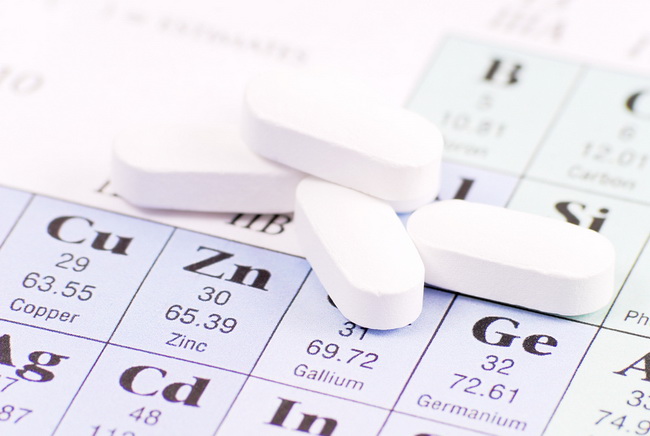
Photo credit: bigstock.com
Isn’t it strange, that we can live in world of abundance and still suffer from nutritional deficiencies? Many people, although well-fed, still lack some basic, essential nutrients in their diets which can cause them to feel sick and tired all the time.
Does this sound like you? Of course you are trying to eat a healthy diet, but the truth is that the soils in which we grow our foods have become seriously depleted of many vital nutrients through modern day farming methods.
One report, from the Centers for Disease Control, states that there are a wide variety of nutrients that are lacking in the general US population.
Nutritional deficiencies might not sound like a big deal, but they actually are. Serious deficiencies can have long term health effects as well as make you feel pretty crummy most days.
If you have been trying to eat a healthy diet, get plenty of sleep and exercising but are still left feeling weak, tired, and have tingling feelings in the extremities, or experience joint pain, have slow wound healing, or if you just end up feeling like crap most days, you could have a deficiency in one or more essential nutrients.
Keep reading and find out the 8 most common deficiencies found in the American diet.
1. Zinc
Zinc is found in every single cell in the body. It is important for keeping your immune system strong and to fight against bacteria and viruses. Zinc helps infants develop properly and helps the cells in our bodies duplicate themselves. This little mineral plays an important part in our sense of taste and smell as well as helping wounds heal quickly. A deficiency in zinc can lead to slow growth for youngsters, a decrease in the ability to taste food, low levels of alertness, impotence in men, skin and eye sores, hair loss, and diarrhea.
The RDA (Recommended Daily Allowance) for zinc is 8 mg for adult women and 11 mg for adult men. You can find zinc in beans, nuts, oysters, poultry, red meat, dairy products, and whole grains. Because beans and whole grains also contain a substance which inhibits zinc from being fully absorbed through the body, vegetarians might want to include a zinc supplement to ensure that they are getting enough of this important mineral.
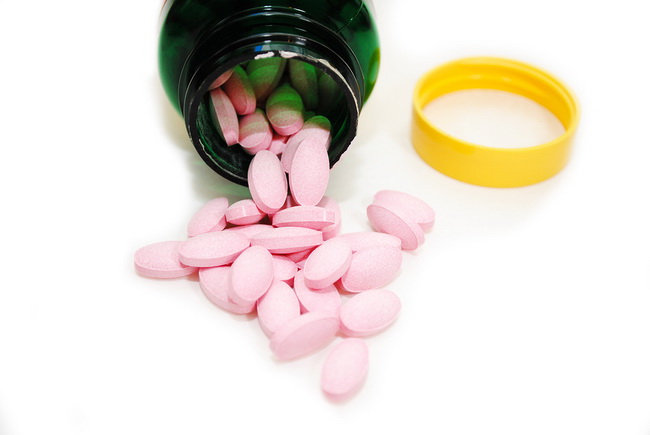
Photo credit: bigstock.com
2. B12
Vitamin B12 is vital to the body for making red blood cells, the synthesis of our DNA, and for proper brain function. Our body does not need much of this vitamin, but it is absolutely vital. Deficiencies in this are quite common, affecting as much as 15 percent of the population. A deficiency in this vitamin can cause extreme fatigue, constipation, weight loss, anemia, weakness, a tingling in the hands and feet. A severe deficiency can cause confusion, dementia, and sores on the tongue or mouth.
The good news is that B12 is found in almost all animal products including poultry, red meat, fish, eggs, and dairy products. Unfortunately B12 is not found in plants, so vegans need to take care to ensure that they get enough of this vitamin. Look for B12 in fortified breakfast cereals and some nutritional yeast products.
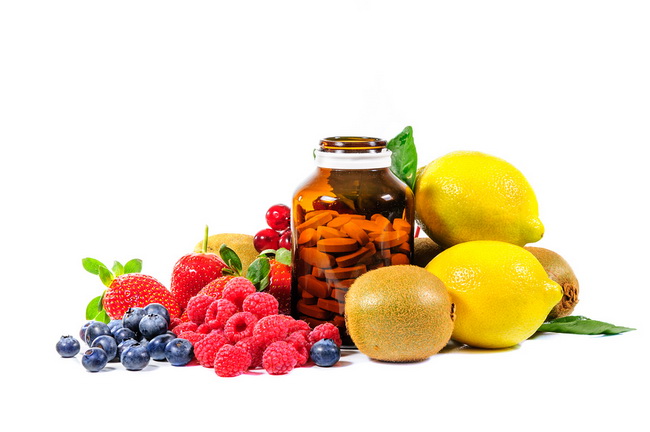
Photo credit: bigstock.com
3. Vitamin C
Although most animals are able to synthesize their own vitamin C, we humans are not so lucky. Our bodies need vitamin C for the biosynthesis of certain neurotransmitters, the metabolism of protein, L-carnitine, and collagen. Vitamin C is also vital for the support of a healthy immune system. Although scurvy is no longer as common as it once was, a lack of vitamin C can cause fatigue, inflammation of the gums, loss of teeth, poor wound healing, and premature aging of the skin. Vitamin C deficiencies are quite common among those who choose a limited diet such as alcoholics and bulimics.
Luckily for us, vitamin C is found in a wide variety of foods including tomatoes, potatoes, red bell peppers, citrus fruits, berries, broccoli, kiwi fruit, and melons, just to name a few. Adult males will need 90 mgs each day and adult females need 75 mgs each day.

Photo credit: bigstock
4. Iron
Iron is the main mineral component in red blood cells. A lack of iron can cause anemia, which leaves us feeling weak, dizzy, and with feelings of extreme fatigue. According to the World Health Organization, a lack of iron is the number one nutritional deficiency in the world There are some foods which can interfere with the absorption of iron in the body, such as dairy products or foods which contain caffeine (such as coffee) but you can also add foods to your diet which can increase the absorption of iron.
Adding foods rich in vitamin C will help you to better absorb more iron from the foods you eat. Iron is found in meat sources such as fish, poultry, and red meat, but is also found in beans and green vegetables. Be sure to either wait 2 hours after eating to consume caffeinated beverages or add vitamin C rich foods to a meal to ensure that your body absorbs more iron. Male adults under the age of 50 need 8 mgs, women under 50 need 18 mgs. For both men and women over the age of 50, the required RDA is 8 mgs.
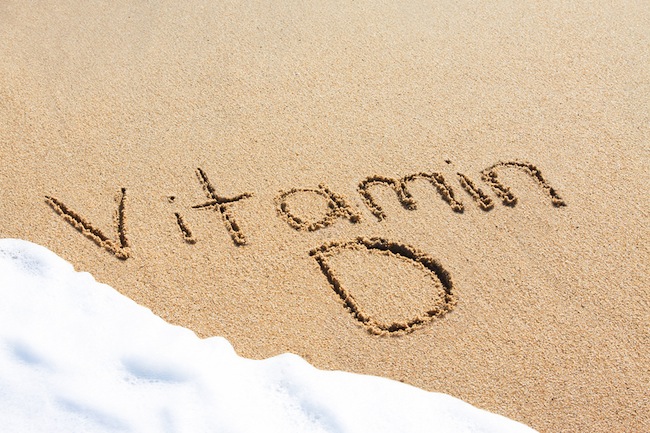
Photo credit: bigstock.com
5. Vitamin D
Vitamin D is not found in very many foods. The best food sources are fatty fish such as tuna, mackerel, salmon, and fish liver oils. Vitamin D is also found in small amounts in foods such as egg yolks, mushrooms, and beef liver. Most Americans get their vitamin D from fortified foods such as cereal and milk. Vitamin D regulates how our body absorbs and uses calcium, so it keeps our teeth and bones strong. Our central nervous system relies on it, as well as our immune system, to keep inflammation levels check. A deficiency of Vitamin D can cause bone pain, muscle weakness, and daytime sleepiness. Although a disease called the rickets is almost unheard of since the 1930’s, it does still occur.
No one needs to be deficient in vitamin D since our bodies convert sunlight into vitamin D naturally. For most people, simply getting 30 minutes of sunshine most days is enough to provide them with all the vitamin D that they need. If you cannot get out into the sun for whatever reason, you may want to consider a supplement. The RDA for this vitamin is 600 IU for both men and women between the ages of 17 and 60.

Photo credit: bigstock.com
6. Iodine
A deficiency in iodine during pregnancy or in the early stages of infancy is the leading cause of brain impairment throughout the world. Mild to moderate iodine deficiencies can cause impaired work productivity, mental clarity, and goiters. Chronic iodine deficiency is known to be linked to a much higher risk of cancer of the thyroid gland. Iodine is used to produce thyroid hormones which control numerous functions in the body including proper brain and bone development as well as metabolism and hormone regulation. Read more about health benefits of iodine.
Iodine is found in seafood, seaweed, dairy products and products made from grain. Although iodine used to be found in many fruits and vegetables, these are no longer a reliable source due to modern farming methods, which have depleted our soils of many trace minerals.

Photo credit: bigstock.com
7. Omega-3
Omega-3 is an unsaturated, essential fatty acid which helps to stop inflammation in the body, as well as reduce the risk of heart disease, diseases of blood vessels, and depression. Although we need both omega-3s and omega-6s, omega6 is found in almost all processed foods, including many vegetable oils. No wonder most Americans have too much omega-6 in their bodies, and not nearly enough omega-3!
SEE ALSO: 6 Reasons to Choose Krill Oil See Why Not All Omega-3 Is Created Equal Infographic
Plant sources of omega-3 are not fully converted by the body and are not enough to give our bodies what they need. Eat two or more servings of fatty fish each week or take a fish oil supplement to ensure that you are getting all the benefits of this amazing essential fatty acid.
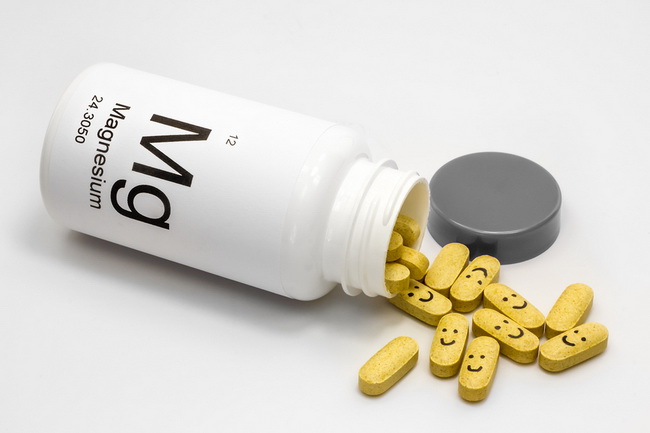
Photo credit: bigstock.com
8. Magnesium
Like calcium, magnesium is an essential mineral for the body. Magnesium is vital to the proper function of the heart and nervous system as well as for preventing unwanted muscle contraction. There have also been links found between higher blood sugar levels and a lack of magnesium in the body, so it is vital for diabetics to ensure that they are getting enough magnesium. This mineral is vital for more than 325 enzymes in the body as well as for removing toxins. Signs you might have a magnesium deficiency are nausea, fatigue, vomiting, cramps, seizures, and abnormal heart rhythms.
You can get more magnesium by eating beans, whole grains, nuts, and vegetables. Even with those foods, most Americans do not get enough magnesium. You might want to consider using magnesium enriched oil or lotion or try soaking in a bath filled with Epsom salt on a regular basis to ensure you get enough of this important mineral. The RDA for magnesium is 400 mg for men between 19 and 30, and 420 mgs for men over the age of 30. Women between 19 and 30 will need 310 mgs and women over 30 will need 320 mgs each day.
Keep in mind that you can also consume too many vitamins and minerals so don’t abuse supplements either. If you think you might have a nutritional deficiency, consult with a physician to confirm your suspicions.
References:




























